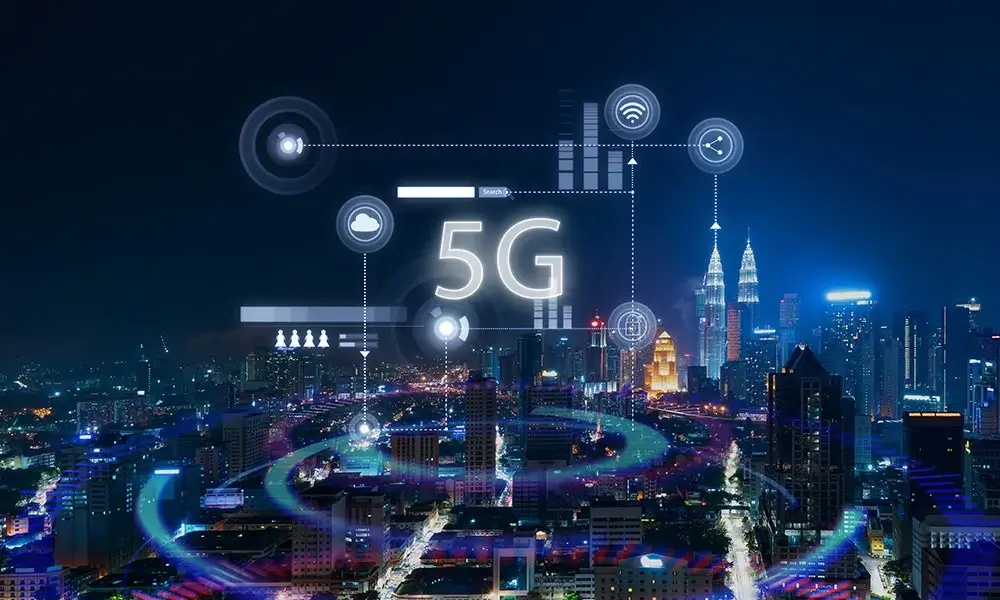The proliferation of 5G technology marks a revolutionary leap in wireless communication, impacting various sectors and reshaping how we connect, communicate, and consume information. As the fifth generation of mobile networks, 5G offers faster speeds, lower latency, and increased capacity compared to its predecessor, 4G LTE. This evolution is not merely an incremental upgrade but a transformative shift that enables advanced applications like autonomous vehicles, smart cities, industrial automation, and remote healthcare.
Network Expansion and Deployment
Globally, 5G deployment is accelerating, with projections indicating a substantial increase in connections and coverage in the coming years. By the first quarter of 2025, there were 2.4 billion 5G connections worldwide, and this number is expected to reach 8 billion by 2029, representing over 94% of the forecasted global population coverage. North America is at the forefront of 5G adoption, with 314 million connections by Q1 2025, covering 83% of the population. T-Mobile has completed a $2 billion network expansion across Florida, which includes upgraded cell sites, and will enable better internet speeds for businesses, schools, healthcare providers, first responders, and residential customers. Vodafone Idea has announced plans to deploy 5G in 23 additional cities across India.
Benefits of 5G Technology
The advantages of 5G extend far beyond just faster download and upload speeds. Key benefits include:
- Ultra-Fast Speeds: 5G offers speeds up to 100 times faster than 4G, enabling seamless streaming, gaming, and data transfer. For example, downloading a movie on a 5G network can take only seconds.
- Low Latency: Reducing network response time to as low as 1 millisecond, 5G is crucial for real-time applications like remote surgery, autonomous vehicles, and industrial automation.
- Massive Device Connectivity: 5G supports millions of devices per square kilometer, making it ideal for IoT ecosystems and smart cities.
- Enhanced Capacity: 5G can deliver up to 1,000 times more capacity than 4G, fostering the development of IoT and enabling numerous devices to communicate seamlessly.
- Improved Reliability and Security: 5G offers more reliable and secure connections compared to public Wi-Fi networks.
These enhanced capabilities are transforming various industries and enabling new possibilities.
Impact on Industries
5G technology is poised to revolutionize several sectors, including:
- Healthcare: 5G supports remote surgeries, telemedicine, and real-time patient monitoring, improving medical care and reducing delays.
- Manufacturing: 5G enables smart factories with real-time communication between machines and systems, predictive maintenance, and automation.
- Transportation: 5G facilitates real-time communication between vehicles and infrastructure, enhancing the safety and efficiency of autonomous vehicles and traffic management systems.
- Smart Cities: 5G supports connected infrastructure for traffic management, energy distribution, and public safety, making urban environments more efficient and sustainable.
- Retail: Augmented reality (AR) shopping experiences and personalized customer engagement are enhanced through 5G connectivity.
Future Implications
The future of 5G extends beyond current capabilities with the development of 5G-Advanced, which promises improved energy efficiency, enhanced mobility, AI-native network automation, and tighter integration with non-terrestrial applications. Standalone (SA) 5G architecture is essential to unlock these advanced features, offering programmability, automation, and performance differentiation. As IoT devices are expected to exceed 30 billion globally by 2025, 5G will be the foundation for interconnected systems, driving advancements in smart agriculture, logistics, and more. Furthermore, advancements in AI, cloud computing, and edge computing will be tightly integrated with 5G networks, shaping the digital landscape and fueling the Fourth Industrial Revolution.















